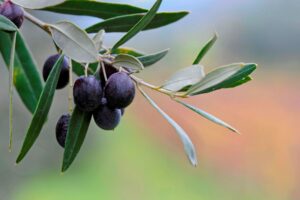A new study published by the journal Frontiers in Immunology has found that an extract made from olive leaves may serve as an anti-inflammatory in leukemic bone marrow, which is important as “inflammation in the tumor microenvironment promotes the growth, survival, and migration of cancer cells, accelerating the disease.”
 The study is titled Olive leaves extract alleviates inflammation and modifies the intrinsic apoptotic signal in the leukemic bone marrow, and was conducted by researchers at Tripura University, the Delhi Public School Megacity, Hariyana Vidyamandir, Manipal University Jaipur and the National Centre for Cell Science, all in India.
The study is titled Olive leaves extract alleviates inflammation and modifies the intrinsic apoptotic signal in the leukemic bone marrow, and was conducted by researchers at Tripura University, the Delhi Public School Megacity, Hariyana Vidyamandir, Manipal University Jaipur and the National Centre for Cell Science, all in India.
The study notes that “current anti-leukemic chemotherapies with multiple targets suffer from side effects. Synthetic drugs with huge off-target effects are detrimental to leukemic patients.” Therefore, “natural plant-based products are being increasingly tested for new anti-leukemic therapy with fewer or no side effects.”
With this in mind, for this study researchers “report the effect of ethanolic olive leaves extract (EOLE) on the K562 cell line and on the bone marrow (BM) of N-ethyl-N-nitrosourea (ENU)-induced leukemic mice.”
Using standard methodologies, researchers assessed viability, chromatin condensation, and induction of apoptosis in EOLE-treated K562 cells in-vitro. The anti-leukemic activity of EOLE was assayed by measuring ROS, levels of various cytokines, expression of iNOS and COX-2 gene, and changes in the level of important apoptosis regulatory and cell signaling proteins in-vivo.
According to researchers:
K562 cells underwent apoptotic induction after exposure to EOLE. In the BM of leukemic mice, EOLE therapy decreased the number of blast cells, ROS generation, and expression of NF-κB and ERK1/2. IL-6, IL-1β, TNF-α, iNOS, and COX-2 were among the inflammatory molecules that were down-regulated by EOLE therapy. Additionally, it decreased the expression of anti-apoptotic proteins BCL2A1, BCL-xL, and MCL-1 in the BM of leukemic mice.
Researchers conclude by stating that “Inflammation in the tumor microenvironment promotes the growth, survival, and migration of cancer cells, accelerating the disease. The current investigation showed that EOLE treatment reduces inflammation and alters the expression of apoptosis regulatory protein in the BM of leukemic mice, which may halt the progression of the disease.”
More information on this study can be found on the website for the U.S. National Library of Medicine by clicking here.
